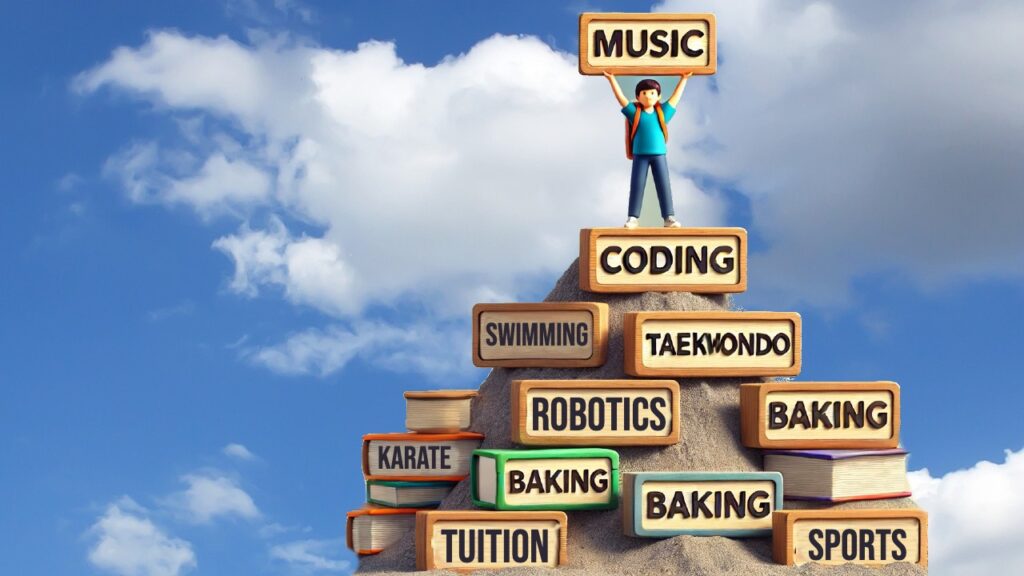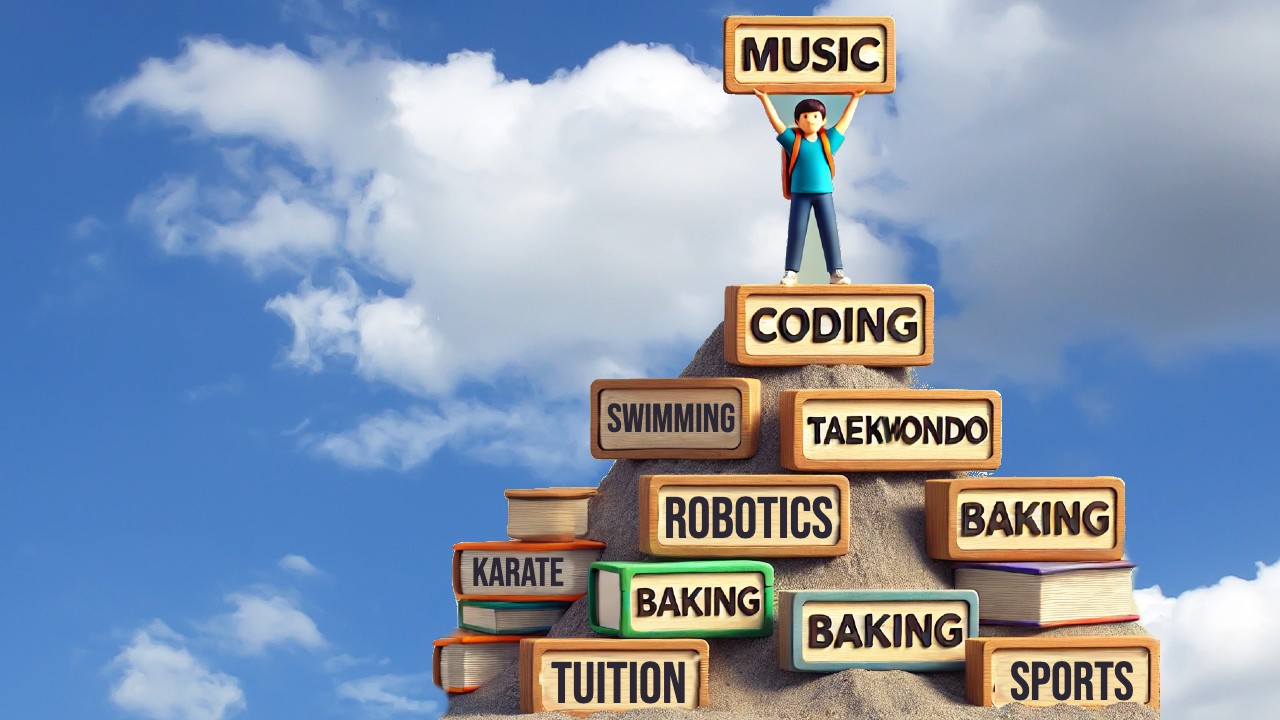Why Music Lessons Are the Ideal Enrichment Program for Children (5 Key Benefits)
 As music teachers, we find it important to share why music lessons are the ideal enrichment program for children. In today’s world, parents are eager to enroll their children in extracurricular activities that enhance their personal development, foster creativity, and equip them with essential life skills. Among the vast array of options—ranging from martial arts and coding to chess and baking—music lessons stand out as a uniquely enriching experience that offers unparalleled benefits. Here are five reasons why music lessons provide a superior foundation for a child’s growth compared to other popular enrichment programs.
As music teachers, we find it important to share why music lessons are the ideal enrichment program for children. In today’s world, parents are eager to enroll their children in extracurricular activities that enhance their personal development, foster creativity, and equip them with essential life skills. Among the vast array of options—ranging from martial arts and coding to chess and baking—music lessons stand out as a uniquely enriching experience that offers unparalleled benefits. Here are five reasons why music lessons provide a superior foundation for a child’s growth compared to other popular enrichment programs.
1. Enhanced Cognitive Development
While coding, chess, and other logical activities do stimulate a child’s brain, music lessons provide a comprehensive boost to cognitive development that surpasses these alternatives. Learning an instrument involves reading sheet music, coordinating finger movements, keeping time, and listening intently—simultaneously.

This multi-sensory involvement enhances brain functions such as memory, attention, and problem-solving. Research has shown that music lessons help improve mathematical and linguistic abilities, making music a powerful catalyst for overall academic success.
Why it’s superior: Unlike chess or coding, which focus primarily on logical and strategic thinking, music lessons engage both hemispheres of the brain, promoting well-rounded intellectual growth.
2. Emotional Expression and Creativity
While baking or martial arts can teach discipline and creativity within specific contexts, music uniquely allows for deep emotional expression. Whether playing the piano, strumming a guitar, or singing, children learn to channel their emotions through music, developing emotional intelligence and resilience. Music serves as a therapeutic outlet, helping children process feelings and navigate life’s ups and downs.

Why it’s superior: Music nurtures both creative expression and emotional release, providing an emotional outlet that coding or chess cannot match. It taps into personal expression in a way that is deeply enriching and fulfilling.
3. Improved Social Skills and Teamwork
Group music lessons, band practice, or orchestra participation teach children how to work harmoniously with others. In these settings, children must listen to each other, synchronize their playing, and adjust their timing to create a cohesive performance. These skills foster cooperation, patience, and empathy, laying the groundwork for strong interpersonal relationships.

Why it’s superior: While martial arts and team sports develop collaboration and respect, music teaches a unique form of teamwork—one that combines listening, adaptation, and collective creativity. Music students gain the ability to work closely with others while still maintaining individual expression.
4. Discipline and Perseverance
Like martial arts, music lessons instill a sense of discipline and perseverance. Mastering an instrument requires hours of practice, dedication, and persistence. Children learn the value of consistent effort and hard work, gaining the confidence to overcome challenges and celebrate small victories along the way. The sense of accomplishment they feel after learning a new song or perfecting a performance is deeply gratifying.

Why it’s superior: While martial arts emphasize discipline in terms of physical training, music lessons demand both mental and emotional discipline. The continuous refinement of musical skills promotes a unique form of perseverance that crosses over into many aspects of life, including academics and personal growth.
5. Cultural Awareness and Appreciation
Music lessons provide an introduction to the rich world of cultural history. Children exposed to different genres, composers, and instruments develop a deep appreciation for cultural diversity. Whether it’s learning classical piano, exploring jazz, or diving into folk music from around the world, music lessons offer a gateway to understanding and appreciating the global heritage of sound.

Why it’s superior: Coding and chess, while beneficial in their own right, lack the profound connection to culture and history that music embodies. Music lessons not only teach technical skills but also foster an awareness of the diverse traditions and stories that have shaped human history.
Conclusion
While activities like martial arts, coding, chess, and baking each offer unique benefits, music lessons encompass a more holistic development of the child’s intellectual, emotional, and social faculties. With its unmatched capacity to enhance cognitive skills, provide emotional expression, foster teamwork, instill discipline, and cultivate cultural awareness, music lessons stand out as the superior enrichment program for children.

If you’re looking for an activity that will not only engage your child’s mind but also nourish their heart and soul, music is the perfect choice.
Don’t take our word for it, take a Trial Lesson with us!
Contact us if you wish to find out more! 🙂








